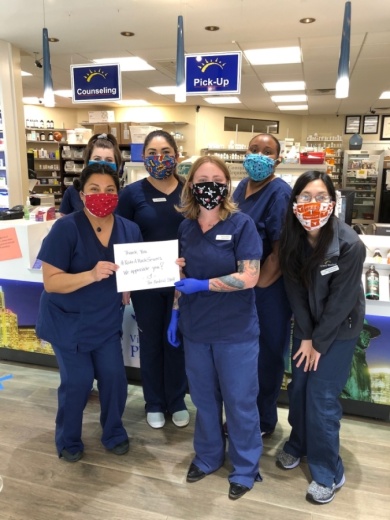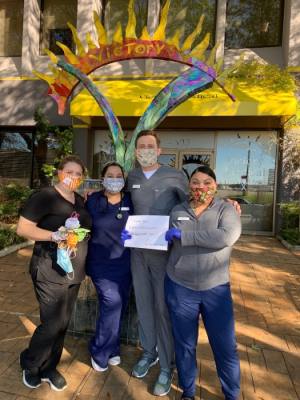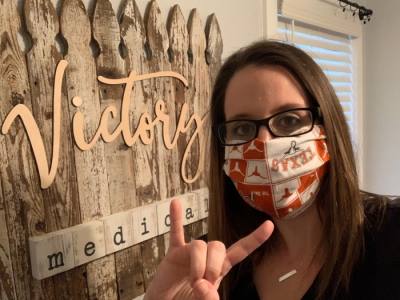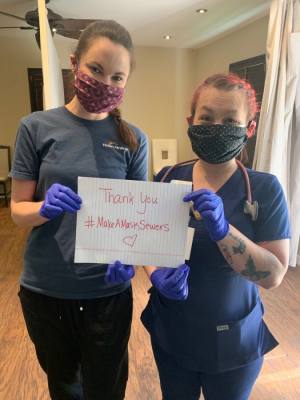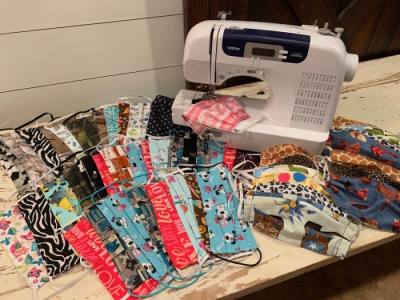Even with this lack of necessary supplies, Reyes knew she would still have to ask her employees to come to work to handle care for patients with COVID-19 symptoms.
“It pulls on your heartstrings, as administrative staff, to do that,” Reyes said.
Reyes turned to social media, putting the call out that she needed donations of hand-sewn masks, which can be used to extend the life of medical-grade masks by covering the medical mask and switching out the fabric mask between each patient. The sewn masks can also be laundered like medical scrubs, meaning each mask has a long-lasting impact.
“This is a call for help,” Reyes wrote. “It’s not just my staff. We’ve got to find a solution for Austin health care workers.”
The post was shared widely and was ultimately seen by over 30,000 people, Reyes said. It resulted in a flurry of efforts to make and donate masks—so much so that she formed an official organization to manage the effort, Make-A-Mask Austin, run entirely by volunteers.
One of the individuals spurred to action by Reyes’ plea was Keele Winter, a fellow Dripping Springs resident.
“Feeling helpless like everyone else, I thought, ‘I know a seamstress,’” Winter said.
Winter reached out to seamstress Carol Acosta, who runs her own business, Carol’s Operations, out of Sophie’s Garden Salon. Ever since COVID-19 began to spread locally, Acosta’s usual business had dried up as clients retreated into their homes. Winter said she saw an opportunity to both support the Austin medical community and a local business, so she organized a community effort to contribute cash to sustain Acosta’s efforts, with a $5 donation paying for one mask.
Acosta, who moved to Dripping Springs last year, said she was delighted with the opportunity to help and to keep her business alive.
“My shop is pretty new, so I was very worried,” she said.
Since Acosta began sewing the masks, donations of elastic, fabric and cash have rolled in from community members, many of whom learned of Acosta’s operation from neighborhood Facebook groups for Dripping Springs and Circle C residents.
At the same time, a number of other communities were spearheading their own donations to Make-A-Mask, both in the Austin area and across the county, Reyes said. As of March 26, Reyes estimated Make-A-Mask had received at least 1,200 donated masks from sewers like Carol. However, with more and more Austin-area health care institutions requesting donations through Make-a-Mask—including major area hospitals, according to Reyes—the need for more donations is still great.
“We honestly can’t even keep up with the number of masks that are being requested,” she said.
Moving forward, Reyes said she has plans to explore new innovations to increase mask inventory, including partnering with veterinary clinics to exchange sewn masks for medical-grade ones while the pandemic persists. Make-A-Mask has already partnered with Dripping Springs Veterinary Clinic to do this, and Reyes plans to reach out to others.
“Our goal is to get a mask in every health care worker’s hands in Austin,” she said.
For more Community Impact stories on mask-making efforts, click here.




